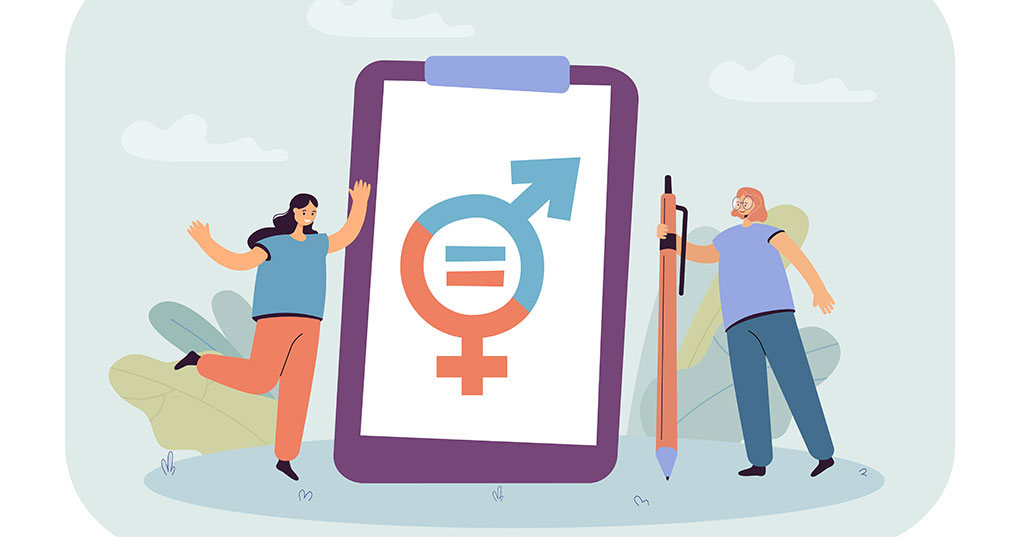Even though there’s plenty of sex talk in our culture, we don’t talk much about sex and disability. There are lots of reasons for this. Most of the reasons have to do with ableist assumptions about the ways that our bodies and sexuality work. People think that if a body doesn’t move a certain way or if someone doesn’t think a certain way, they either aren’t sexual – they don’t desire sex – or maybe they do, but they’ll never be able to have sex.
All of these assumptions are incorrect, but they persist because they form the foundation of how we think not just about sex and disability but about all bodies and all sex.
Given this, it makes sense that disability is left out of almost all sex education. After all, people who aren’t sexual or aren’t going to have sex don’t need sex education. Right?
Wrong. Everyone who lives in this world, whether they have sex or not, whether they desire sex or not, should have access to a good sex education.
In some ways it’s strange because so-called comprehensive sex education often emphasizes how unique and individual sexual expression is. And yet it delivers information as if we were all, more or less, the same. The result is sex education that leaves a lot of people out, disabled and non-disabled. But the impact is particularly obvious if you live with a disability.
Here are a few examples of how young people with disabilities are excluded from sex education:
- Sex education in schools often happens during physical education, a class that kids with disabilities are routinely excluded from.
- One way young people learn about sex is by hanging out with other young people. Youth with disabilities who are institutionalized and/or live rurally may not have any friends their own age to hang out with, and so they never get those learning opportunities. Young people living in the community may rely on parents or caregivers for transportation to and from school. They miss out on hanging out after school and the kinds of learning about sex that happen in social situations.
- Kids with disabilities usually have less privacy and fewer ways to hide their sexual curiosity from parents, which itself can stop them from trying to learn about sex or explore their own bodies. Imagine trying to look at porn or look up sex information if you need your parents to turn the computer on and off. Imagine if you had to rely on your parents to check out library books for you, or go shopping with you. What you would buy and what you would look at would probably change a lot.
- Practically all sex education for young people erases the existence of disabled bodies and disabled experience. If kids don’t find themselves in any sex education or information, the message is clear; sexual expression is not an option for you.
Adults with disabilities also rarely see themselves in sex education or information. And when they do it’s often “special” information. They might get a chapter in a textbook, or a textbook of their own that just talks about disability and sex, but it’s always the “other” example, the poor cousin to what “real sex” is like.
The problem with this is that while it reflects their experience of being excluded, it doesn’t reflect how sexual expression works. People with disabilities don’t need their own sex education. All they need, all any of us need, is sex education that is open to all experience.
The truth is that most sex education is equally relevant to people with disabilities as it is to non-disabled people. It’s the way it is delivered that leaves people out, and makes it so hard to access.
Creating Accessible Sex Education and Information
No one needs to reinvent the wheel. Sex education, after all, isn’t a how-to book. It is a way of giving people information about sexuality so that they can more freely and fully explore what it is that they want to explore. What we need is sex education that:
- Challenges ableist notions of bodies, beauty, and desire.
- Includes a diversity of embodied experience, which includes what sometimes get called disabled and non-normative bodies.
- Spends as much time highlighting the things we all share when it comes to sexuality as it does highlighting the differences.
- Addresses not only individual sexual experience but the way that sexuality is expressed and experienced in community and in society.
There really isn’t much sex education that achieves these goals. Not yet. Plenty of folks with lived experience of disability and allies have stopped waiting for the experts to do their part, and have started making their own sexual material, some of which is educational.












